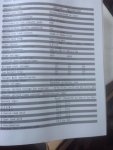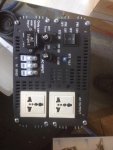essJ
Guest
Hello all.
With so many suppliers advertising solar power, can anyone recommend a solar panel installation they have used please, i.e. type and supplier of panels and regulator ?
I have 2 x 110 Ah LB's and run a 240v fridge from an inverter (not pure sine wave). I have a split charge system from the alternator and was intending to add 100w or perhaps 200w solar to keep the batteries topped up. We usually move on after no more than 3 days.
Any thoughts/advice gratefully received.
Thanks, SJ.
With so many suppliers advertising solar power, can anyone recommend a solar panel installation they have used please, i.e. type and supplier of panels and regulator ?
I have 2 x 110 Ah LB's and run a 240v fridge from an inverter (not pure sine wave). I have a split charge system from the alternator and was intending to add 100w or perhaps 200w solar to keep the batteries topped up. We usually move on after no more than 3 days.
Any thoughts/advice gratefully received.
Thanks, SJ.



